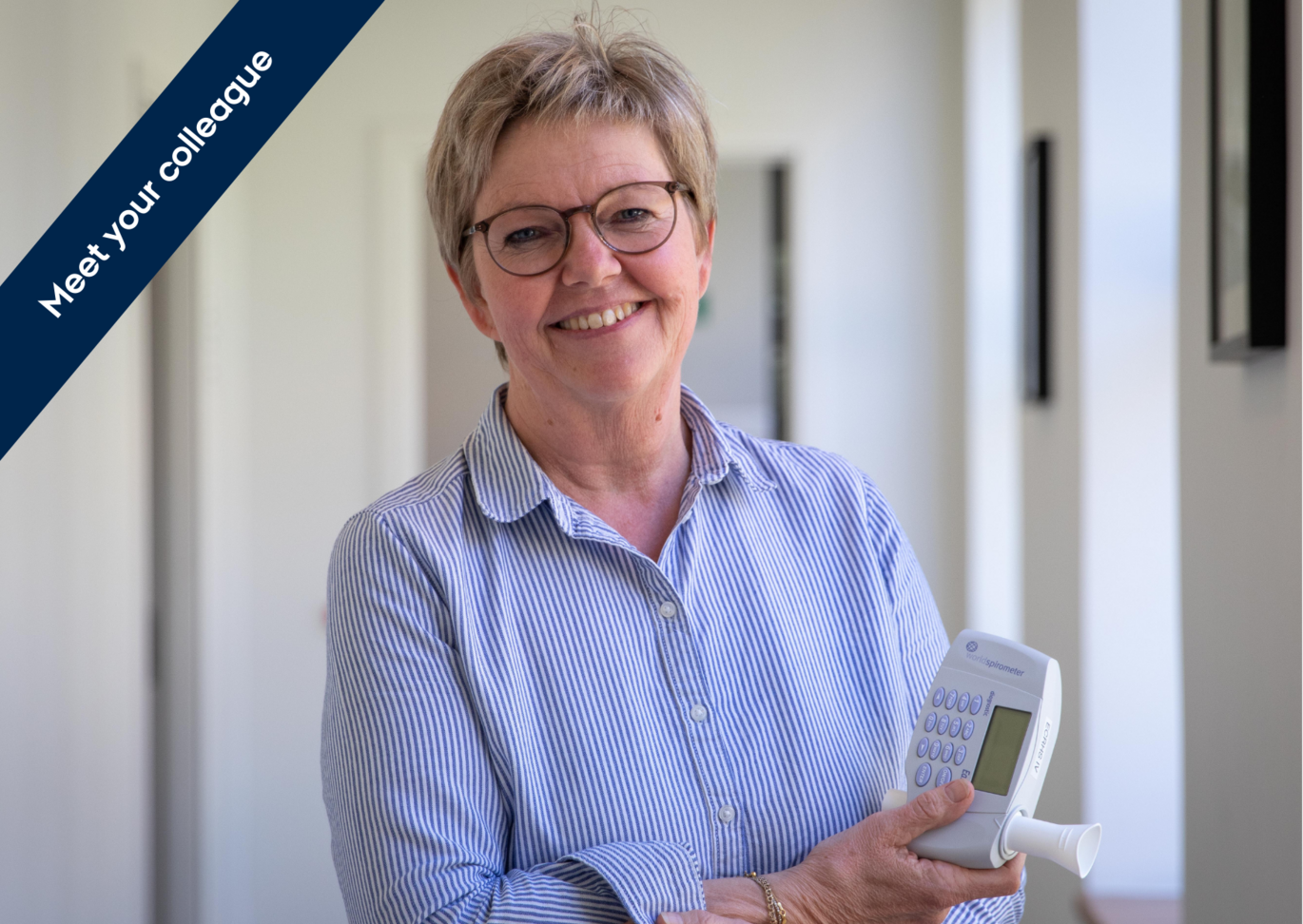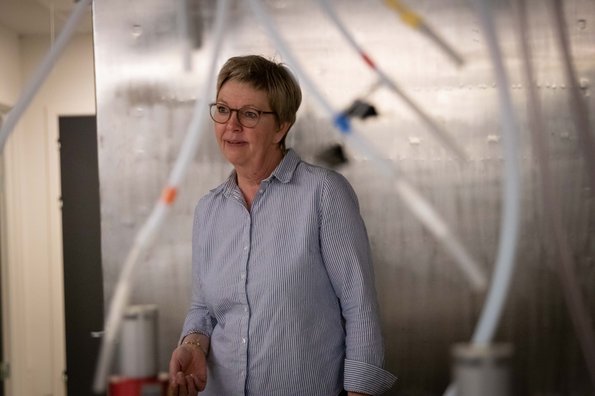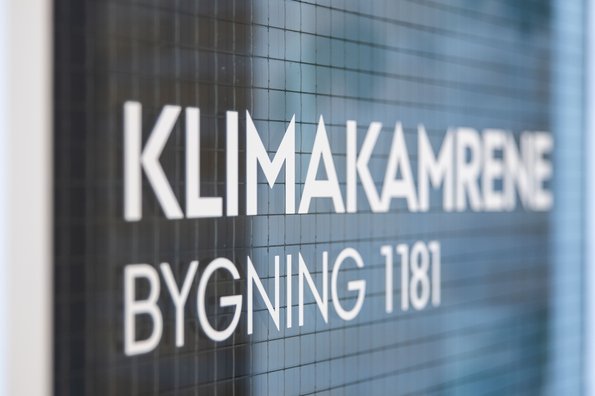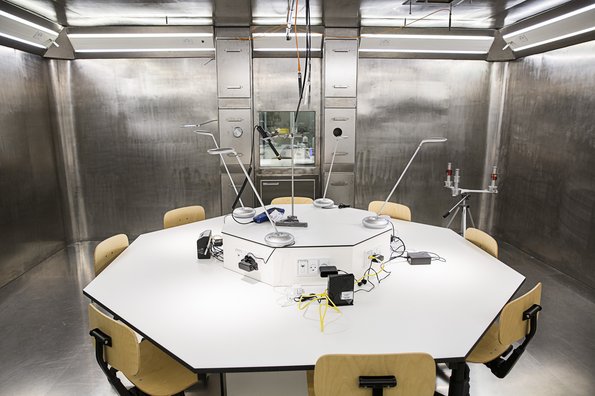"I'll be here until they throw me out"
When major research projects need to measure the effect of smoke from a wood stove, e-cigarettes or CO2 on us, Laboratory Technician Kirsten Østergaard at the climate chambers at the Department of Public Health stand ready with her syringes and measuring equipment. During her 25 years of employment, she has taken countless samples, both at the university and out and on field trips both in Denmark and Internationally. She opens our new series in which we meet colleagues from around the faculty.

Meet your colleague
- Kirsten Østergaard is the first to be featured in Health Communication's new series "Meet your colleague"
- In the series, we will meet some of our many talented colleagues around the Faculty, gain insight into their work and learn about the many different tasks they undertake daily
- Do you have a colleague who you think we should showcase? Tip us here: health.kommunikation@au.dk
My day often starts with me welcoming a group of test subjects early in the morning. I typically take blood samples, test their lung capacity and do an allergy test on them. It’s all part of the preparations for entering the climate chambers, where the technicians and researchers then take over the experimental programme that we are running that day. We have many different test subjects coming in, some are COPD patients, others are students, and some of them are people we’ve been following for years. For example, we’ve just had a group here for lung tests. That group first participated in an experiment back in 1995, then again in 2012 and now in 2022. Most often I have several groups a day, and in addition to testing them, my colleague and I welcome them and make sure that they have a positive experience. The vast majority of participants are volunteers, so it’s important that they also feel welcome while they’re here.
I was born and raised in Brønderslev, and as a child I knew I would work in the healthcare service. I ended up choosing the two-year laboratory technician education, which at the time could be taken in Frederikshavn, which was relatively close to me. My first job in Aarhus was at Stein's Laboratory, but for the last 25 years I've worked here at the department, and I've honestly never been tempted to look for jobs elsewhere. I'll be here until they throw me out the door. My work is exciting, and we’ve got a fantastic team of colleagues with a great team spirit. The job gives me a lot of great experiences that I wouldn’t have had in a laboratory technician position elsewhere.
About Kirsten Østergaard
- Kirsten Østergaard recently celebrated her 25th anniversary at the Department of Public Health.
- Employed as a laboratory technician at the climate chambers under the Department of Public Health.
- 58 years old
- Born in Brønderslev
- Lives in Søby near Hornslet
- Married with two grown-up children.
- Read more about the climate chambers and the research projects here: https://ph.au.dk/forskning/core-faciliteter/klimakamrene
Fish factories and sleeping children
Of course, many of my days are spent here around the climate chambers, but I’ve also had many exciting days on the road. Among other things, I spent six months travelling all over Jutland with a team from Bispebjerg Hospital. Our job was to study the indoor climate at schools, and over the course of the six months we took blood samples from more than a hundred teachers.
In connection with some major EU-funded studies I’ve also travelled around Europe a lot to supplementary training and conferences. But the biggest travel experience in connection with my work was when we three times travelled with the Department of Occupational Medicine in Aalborg to Greenland. There we took samples for a project that studied the working environment for employees at some of the big fish processing factories. Visiting places like Disko Bay and Nuuk was a unique experience, and I had some exciting working days in the field.
It’s not only travel that makes my job exciting. Going to work is almost always fun, although there are, of course, some days that stand out from the rest. For example, when we had a visit from a group of children aged 10-12 who spend the night in the climate chambers. In connection with that project, my colleague and I had many different roles. We welcomed the children, made sure they ate dinner and got them installed in the chamber. In order for the experiment to be carried out, they all had to wear completely identical clothes, so we had a set of nightwear ready for each of them to put on before they got into the bunk beds. We left them to the chamber technicians around ten in the evening and were back before six the next morning to take samples again before we helped them get ready to go to school.
I think it's exciting to be involved in the many projects here, and even when the researchers don’t directly ask me to read through the reports, I often skim them anyway. The individual blood test or lung test doesn’t provide answers in itself, so it’s interesting to see what results my work has contributed to. I don't think about it in my daily work, but nothing would be achieved here if we laboratory technicians were not here.



